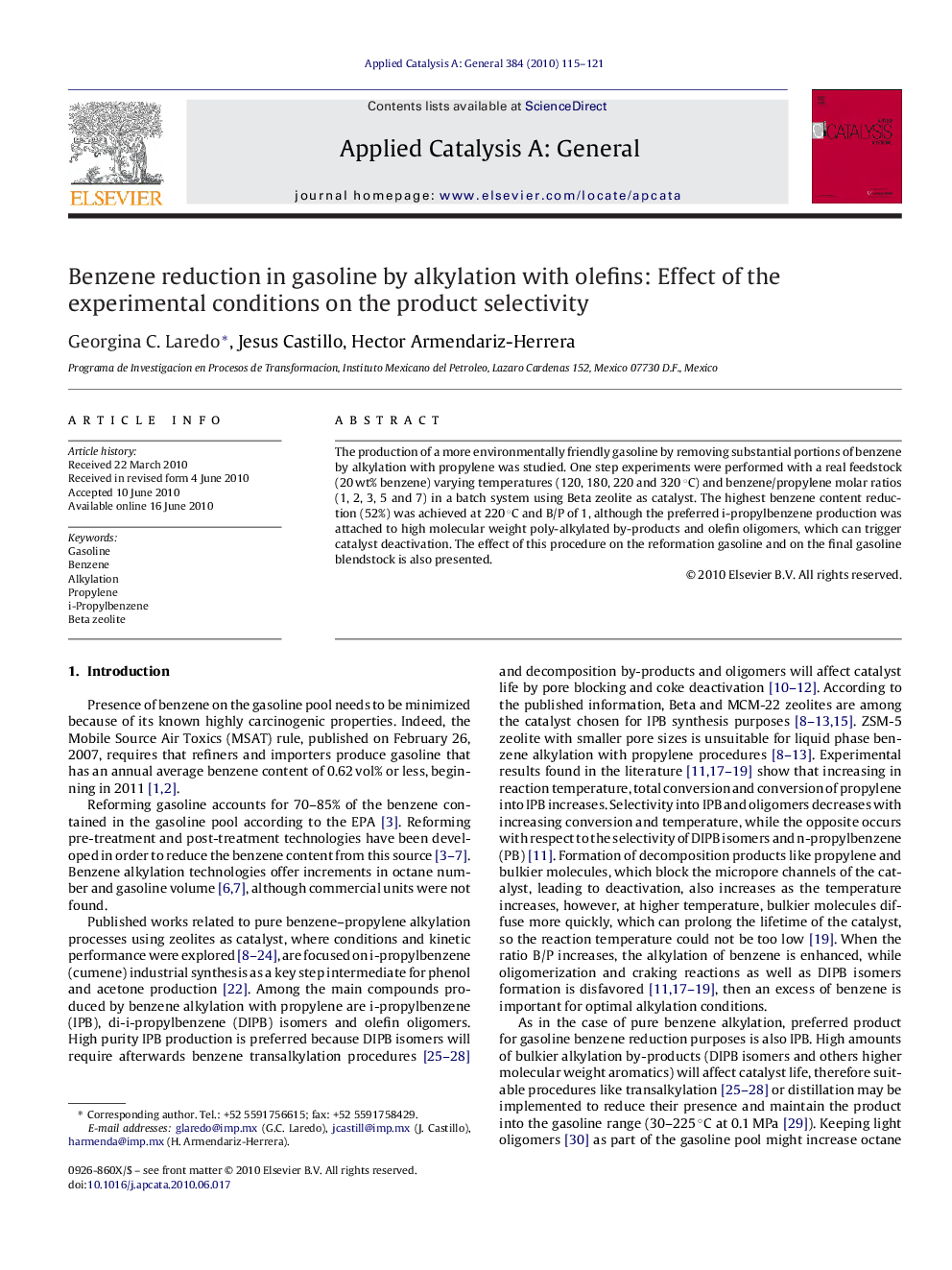| کد مقاله | کد نشریه | سال انتشار | مقاله انگلیسی | نسخه تمام متن |
|---|---|---|---|---|
| 41943 | 45905 | 2010 | 7 صفحه PDF | دانلود رایگان |

The production of a more environmentally friendly gasoline by removing substantial portions of benzene by alkylation with propylene was studied. One step experiments were performed with a real feedstock (20 wt% benzene) varying temperatures (120, 180, 220 and 320 °C) and benzene/propylene molar ratios (1, 2, 3, 5 and 7) in a batch system using Beta zeolite as catalyst. The highest benzene content reduction (52%) was achieved at 220 °C and B/P of 1, although the preferred i-propylbenzene production was attached to high molecular weight poly-alkylated by-products and olefin oligomers, which can trigger catalyst deactivation. The effect of this procedure on the reformation gasoline and on the final gasoline blendstock is also presented.
Figure optionsDownload high-quality image (119 K)Download as PowerPoint slideResearch highlights▶ Formation of by-products could not be avoided by changing experimental conditions. ▶ A maximum benzene conversion was obtained at 220 °C (1/1 B/P). ▶ Formation of by-products decreased at lower temperatures. ▶ Benzene conversion decreased drastically at higher B/P molar ratios. ▶ IPB selectivity increased slightly at higher B/P molar ratios.
Journal: Applied Catalysis A: General - Volume 384, Issues 1–2, 20 August 2010, Pages 115–121